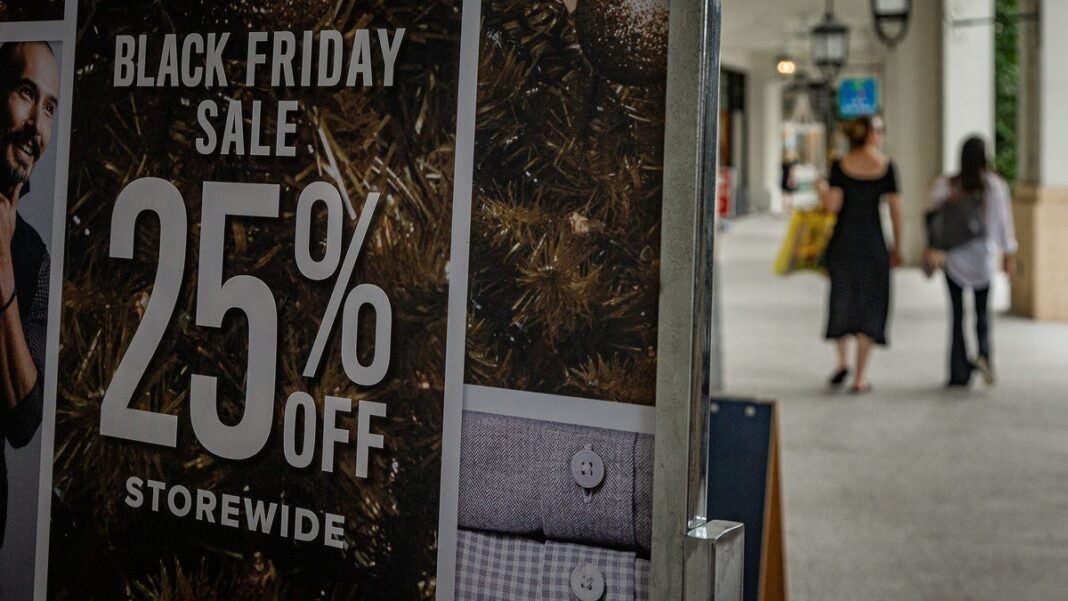Think you found a fantastic Black Friday deal? A study reveals there’s a 30% chance it isn’t.
As Black Friday draws in eager shoppers with its flashy, significant discounts on the latest gadgets, a new report indicates that almost one-third of these deals might not be genuine.
After reviewing 65 items expected to be popular tech deals last year, KnownHost, a web hosting service, found that 78% were part of Black Friday promotions. Importantly, around 30% of the items had their prices artificially inflated prior to Black Friday to create the illusion of a major discount. Meanwhile, 42% maintained consistent pricing up to the event before dropping significantly, confirming those particular price reductions were legitimate.
Focusing on the most sought-after tech items from last Black Friday, they discovered that 37% experienced notable price increases just before the shopping day, whereas only 7.8% had a price drop, marking them as the true steals.
With rising inflation over the last two years, shoppers on a budget must do their research to ensure they’re truly getting the discounts they expect this Thanksgiving weekend.
Daniel Pearson, CEO of KnownHost, stated, “This serves as a critical reminder for consumers to investigate and compare prices before making purchases. Shoppers should know which items have had price increases recently and assess whether discounts provide substantial savings compared to prices earlier in November.”
What was the price increase for retailers before Black Friday?
About 30% of products saw price increases in the week leading up to Black Friday, with the average increase recorded at 20.5%, or $51, according to KnownHost.
Amazon items showed the most considerable price hikes before the shopping event. The price of the Amazon Fire TV Stick surged from $20 to $40, doubling its cost, while Echo Buds saw a 46% increase, or $55. The top three also included Amazon Fire Max 11 Tablets, which had a 35% price jump, amounting to $80.
In terms of dollar value, the Samsung Galaxy Z Fold 5 had the highest price increase, rising $300, equating to a 16% jump, from $1,620 to $1,919.99.
Which items are most prone to price increases before Black Friday?
Tech accessories experienced the highest price increases at 26%, as reported by KnownHost.
This was followed by:
- Headphones (21%)
- Watches and laptops (16% each)
- Phones (11%)
- TVs and tablets (5% each)
“This suggests that Black Friday might be the prime time to snag better discounts on TVs,” KnownHost noted in their report while cautioning consumers to avoid “tempting add-ons.”
“Price hikes are just one of various scams that can happen,” they added, emphasizing the importance of ensuring the legitimacy of the sellers to avoid falling for misleading marketing strategies.”
What else should you be cautious of?
Stay vigilant against fake reviews and counterfeit products.
- During Black Friday, approximately 28% of reviews for 75,000 products across major e-commerce sites like Amazon, Best Buy, and Walmart are expected to be AI-generated, as per a study by the AI fact-checking tool originality.ai. The estimation for the entire holiday shopping period is around 33% being AI-created.
“AI-generated reviews can mislead customers, providing them with inaccurate information that affects their purchasing decisions… especially when shoppers are being increasingly budget-conscious,” reported originality.ai.
- According to research from Michigan State University in 2023, nearly 70% of consumers have been tricked into purchasing counterfeit products online at least once. These fakes not only harm retail revenues but can also pose risks to buyers, the report highlighted.

